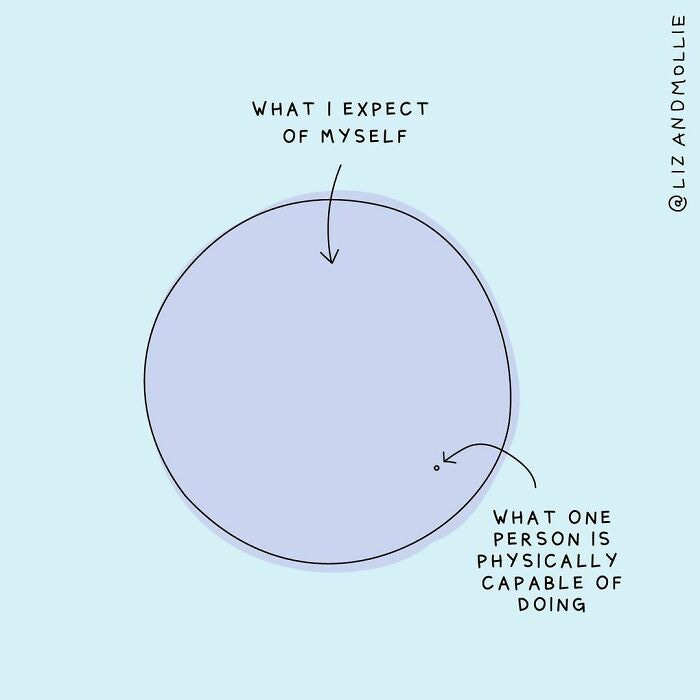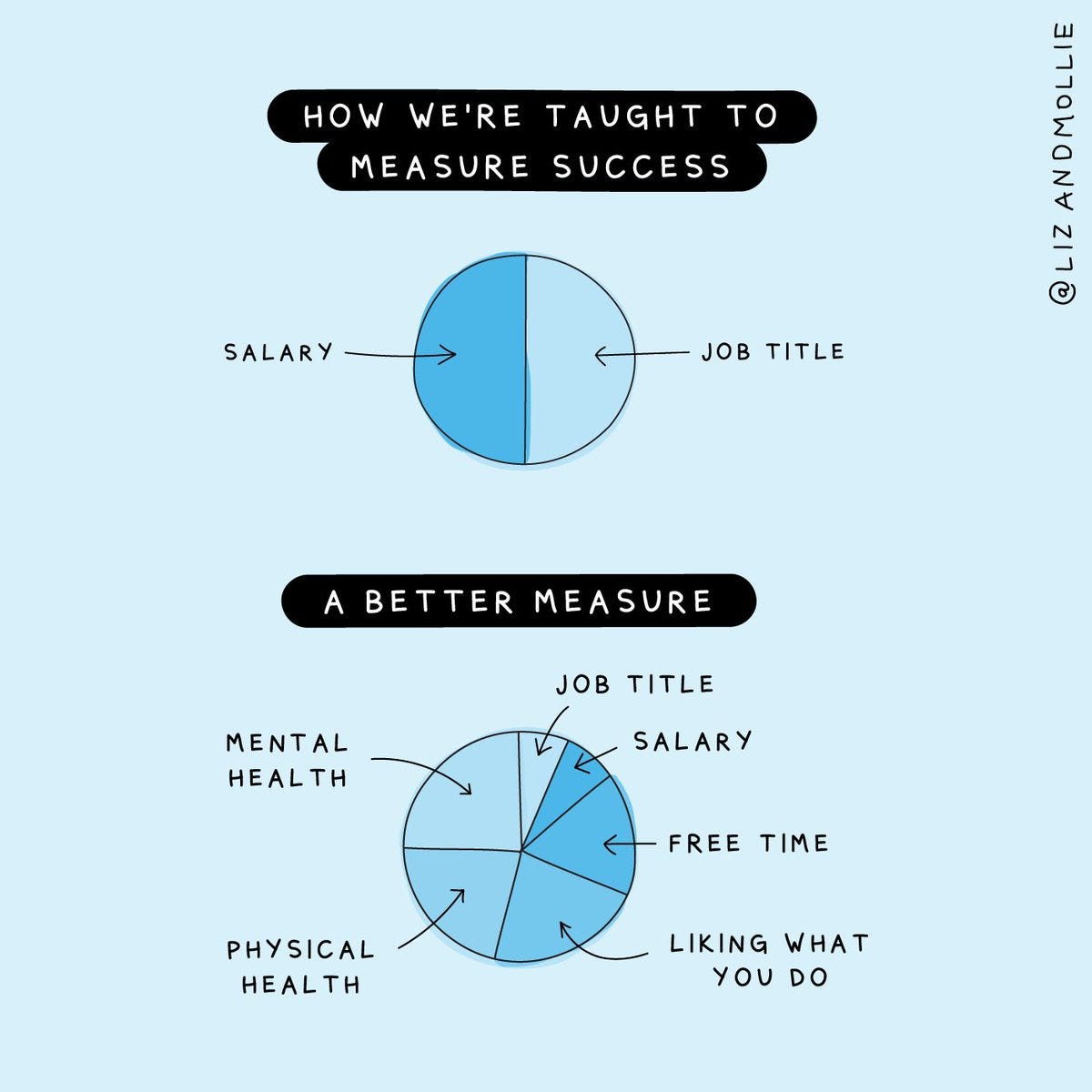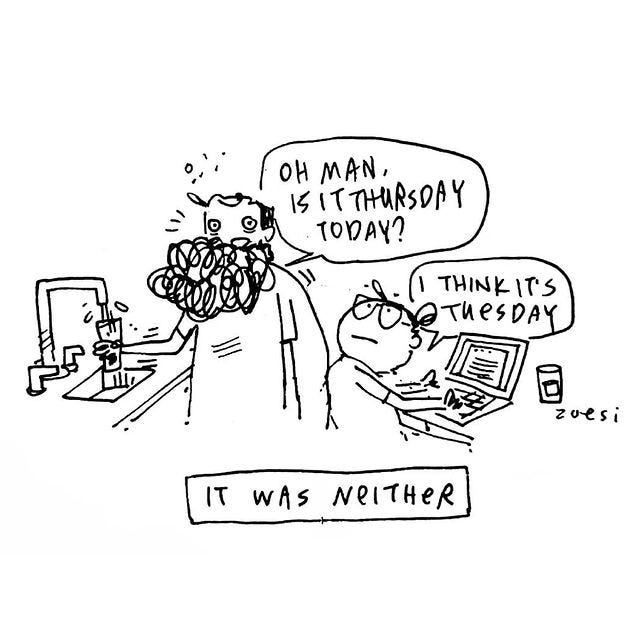Can we stop chasing productivity?
Total productivity is a myth, so we've gotta reign in those hacks.
Six months into 2022, how many new productivity techniques have you tried this year? Or, how many new ones have you heard about? Old techniques spun with a new twist count too.
Me? I've read countless articles, watched innumerable reels, and seen just as many tweets about how to be more productive. And even for someone who's as online as I am, this is a bit much.
When we spoke about the rise of toxic productivity on social media, we figured out that 2020 was the time #ProductivityTok started gaining traction. After all, how can we just stay at home and deal with the effects of a raging global pandemic? No, capitalism needed to find another way to get us to want to work more, produce more.
Yeah, productivity is a fundamentally capitalist concept.
Productivity is a measure of economic performance that compares the amount of goods and services produced (output) with the amount of inputs used to produce those goods and services. — Bureau of Labor Services, US
Obviously, some folks think of productivity in terms of their side-hustle or their personal projects, but more often than not, it's about doing more in your 'work'day. The idea is to maximize your productivity and increase your output, but we say it differently — check more things off your to-do list or finish things faster to do more things. We don't consider (or well, we shouldn't) a meeting with friends or time spent with our family productive. The idea is not to "gain" something from every single thing we do or work on, but that's a different discussion.
However, no matter how many productivity-hack TikToks or articles you check out, chasing total productivity is extremely detrimental to our mental, physical, and emotional health. Also, it's not possible.
For all the merits of modern productivity thinking, it is absolutely terrible at helping people come to the point of enough. When your goal is to be the most efficient machine possible, your work never ends. We never reach the point of being done, no matter how many daily widgets you churn out. Productivity, without barriers, is a race to the bottom, a race where no matter how fast we go -- we never truly arrive.
Wasting time to save time
In January 2021, I took out two hours and decided to learn how to use Notion. I found a really interesting video that fused the Get Things Done system with a Notion dashboard and promptly set about incorporating it so it'd be ready to use when I went back to work after New Year's break.
Ask me how that system's working out for me now. 🤡
Much like bullet journalling, Todoist, and a myriad of productivity apps I've tried and gotten tired of, Notion is just there now (in my "productivity stack"). I still use all these apps today, but not to increase my productivity — some are databases, others are memory aids, so nothing slips through the cracks.
And yet, two weeks ago, I wanted to try digital bullet journaling1. There's nothing like learning something completely new that makes you want to be productive, eh?
Don't take my word for it; it's what the novelty effect is:
The novelty effect, in the context of human performance, is the tendency for performance to initially improve when new technology is instituted, not because of any actual improvement in learning or achievement, but in response to increased interest in the new technology.
I used that Notion dashboard religiously for about three months before I discovered I was too lazy to actually do all of those brightly-coloured-and-neatly-categorized tasks. But boy, were they organized. After a point, even organizing them so nicely was a chore, and I was ready for a simpler, newer system to take its place.
Humans are creatures of routine most of the time, so it makes sense that we would choose to try out new productivity techniques instead of, you know, actually doing the things. It's easier to waste time when you think you're being productive.
I've found that I can easily trick my brain into believing that learning or figuring out a new productivity technique/system/hack is ultimately for the greater good because think of all the time it'll save me in the future!!
A few months after Notion, I tried time-blocking. This is where you schedule every single thing in your life — your work, yes, but also your leisure and your family/friends, etc. I got as far as making colourful Google calendars and putting funky labels on them but slept through my supposed 'wake-up timeslot' the next morning.
I read Oliver Burkeman's Four Thousand Weeks: Time Management for Mortals and was confronted with a radical (and brutal) realization. Not only is this frantic need to control my time pointless – it's also a massive distraction. — Anna Codrea-Rado.
Anna's Lance was a newsletter I read religiously, and even though she doesn't publish it anymore, some of what she said still resonates with me. I'm currently reading Four Thousand Weeks — which is the number of weeks we have in our lives, and I realized so many of our productivity hacks are really just ways to control our time.
What's on your to-do list?
Turns out I'm not alone in wanting to control my time and squeeze out more work than is humanly possible. I can't be, when there are scores of articles being written every day about new productivity tips or even rehashing old ones because it's an evergreen concept as long as our self-worth continues to be tied to our output (aka jobs). I'm sure I've written one or two of those for companies, or I might write one in the future because there are no original ideas anyway, and it's always nice to read about something we all have in common — the desire to be (hyper)productive.
Similarly, you'll find just as many versions of today's edition about how productivity hacks are a waste of time, or total productivity is a farce — it's clear both sides of the productivity debate are filled with opinions. In today's collapsing economy, only doing your 9-5 is for the very, very privileged. Everyone's got a side hustle or a passion project of some kind. Either you need more money, or you need more fulfilment or both. And this is where productivity hacks or techniques come into play because we've all really got limited time to do so many things.
As I write this newsletter, my to-do list is filled with so many tasks I'm actually severely overwhelmed. But on Monday, a friend (who is simultaneously overworked and one of the most hardworking people I know) told me to see if I could postpone or delay some of the things. Not a radical thought but one I hadn't even considered.
We're so committed to 'doing everything' that often, we don't realize the difference in the tasks on our to-do lists. As it turns out, 'have to do', 'would like to get this done today' and 'want to do' are three categories under which you can file your tasks (mentally, unless you want to consider this a new system). We can postpone some things but that interferes with doing as much as possible (and more!) in our day so we don’t think that’s an option at all.
Our productivity systems are all about getting ourselves to 'do stuff'. But sometimes you also need to not do the stuff (right now or ever), but there's no real article or hack to take you through not being productive. Because then what are you contributing to society? What's your legacy? What are you doing?
Despite all the productivity cheerleaders, we're not any more productive than we should (read: can) be. In fact, research shows that there’s a global slowdown in productivity — one that we should have seen coming from a mile away. One of those reasons is the aforementioned global pandemic (which is still ongoing, thank you very much), but also, many of us haven't really taken a proper, restful break in so long. You gotta recharge your batteries before you can expect high levels of output is a simple thought you think senior management would get, but you'd be surprised.
Productivity ≠ busyness — I can be super busy, but not productive as I set up my new productivity system or do tiny tasks that inch me nowhere close to completion. The goal should be to work as much as we're capable of — without expectations and with consideration for our individual abilities.
When we take into consideration disability, differences in attention span, brain-width (and bandwidth), and transform our idea of productivity to a less-ableist one, we might actually end up as more empathetic, understanding people — but of course, that might reduce productivity and output, so that's not something that works for capitalism, does it now?
P.S. A neuroscientist debunked 14 of these ultra-popular productivity myths.
What did you think of this issue?
Your anonymous feedback helps me improve. Thanks!
Nia’s newsletter rec!
Alex is a new friend I made through Substack Grow, and he writes Both are True: absurd and honest comedy delivered through vulnerable personal essays. He talks about being a writer and actor in Los Angeles, fatherhood, that classic dance between creativity and mental health, the first-gen immigrant experience of a lil kid named Sasha who moved to America from Ukraine when he was seven, and most importantly deep dives into the true meaning of The Pina Colada Song (friends, it is not what you think).
My fav issue:
Weekly roundup of cool stuff to check out 💌
Good to know: The symptoms of a heart attack are different for men and women. Women don't always have chest pain — it's a good idea to know the different indications for both sexes.
For all my fellow-Android users: 14 handy hidden features in your Gmail app.
Open this video, hit pause, put on your headphones, close your eyes, and hit play. Just trust me on this.
I finished reading Anxious People by Fredrik Backman over the weekend. What a book, y'all. Please read it as soon as you can.
It's important that everyone understands that you can't ban abortions. You can only ban safe abortions.
And if you're curious about why I, someone who isn't even American am so concerned — take a look at your newsfeed. America dominates our timelines and the global world in ways we can't fathom. It's the first domino to fall, and more often than not, countries elsewhere will use this 'first-world country' and its regressive laws to justify theirs.
Paula Rego's Abortion Series is still (sadly) relevant today.
Something positive to cut through this.
Finally, if you’re having a week™, here’s something hella relatable to end this edition:
Thanks for reading! Don’t forget to hit like and share this issue if you enjoyed it. 🖤
I’ll see you next week — maybe not at the same time, but definitely the same place.
Because the easier, more accessible paper bullet journaling worked out so well for me.






I really like the graph showing what success actually looks like. A lot of us put off all of the other things except for monetary success thinking that we have to work hard while we still can and stack our coin. I think this is a consequence of not having a good social security system in the US. Mental health really only started becoming important recently, and it is a consequence of evolution. We have a lot of our basic needs satisfied, so of course we are going to be more concerned with transcending those and taking care of what's within.
omfg nia FIRST THANK YOU FOR FEATURING ME
second off are we the same person?? I suffer from Productivity Disease too, have tried and still sorta use Notion and all the other things you mentioned. the 4000 hrs book rocked but i forgot what i learned and now am back in the hampster wheel. I've even been using, wait for it, Roam Research :( But that one I actually love lol